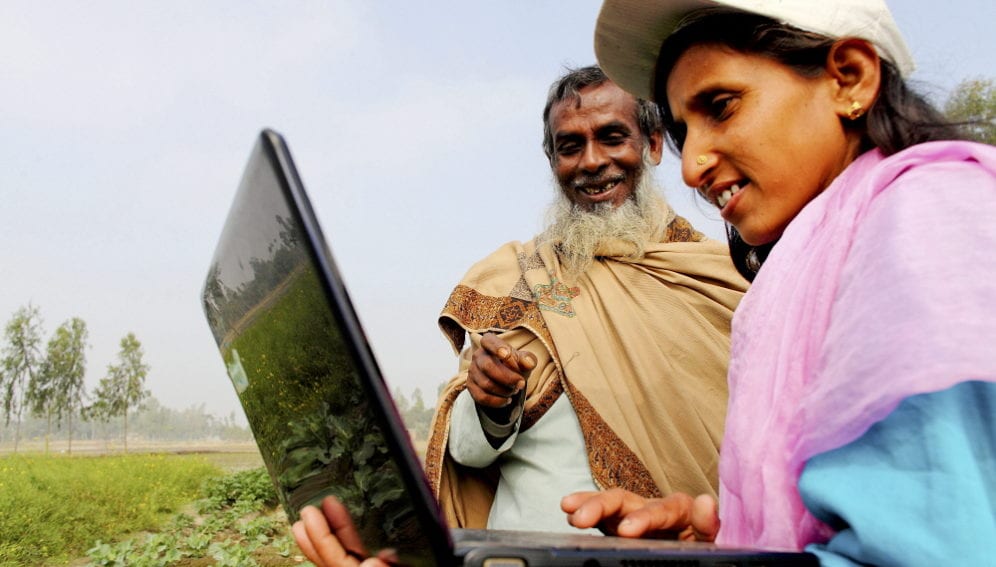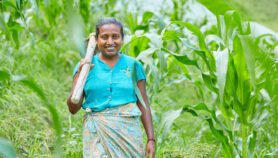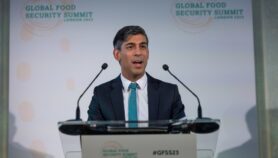By: Giovanni Sabato
Send to a friend
The details you provide on this page will not be used to send unsolicited email, and will not be sold to a 3rd party. See privacy policy.
[ROME] Interest in ensuring the openness of agricultural and nutritional data is gaining momentum and two major initiatives working to facilitate their accessibility are considering joining forces, a meeting has heard.
Open data are crucial to fight food insecurity and build a sustainable agricultural system, Josef Schmidhuber, deputy director of the UN Food and Agriculture Organization’s statistical division, told the meeting, which was held last month (22-24 April) in Rome, Italy.
But many organisations who study or work in agriculture do not make their data public — and even if they do, the data are hard to find, unreliable, irrelevant or impossible to compare with those from other sources, he said.
In 2008, the FAO was among the organisations that launched the CIARD (Coherence in Information for Agricultural Research for Development) movement, Johannes Keizer, FAO information systems officer, told the audience.
CIARD works to advocate for openness among agricultural data holders and users, he said.
The initiative is doing an excellent job in engaging the scientific community, Catherine Woteki, chief scientist at the US Department of Agriculture, told SciDev.Net.
But it is failing to influence senior policymakers and businesses, according to Woteki.
“Open data for agriculture is much broader than the scientific data,” she said, adding that there are many other types of data, including information on resources and production held by government agencies or by local institutions. “And the private sector has a crucial role in taking these data sets and creating useful applications.”
Last October, to fill this gap and establish a wider partnership including governments, NGOs and the private sector, the Global Open Data for Agriculture and Nutrition (GODAN) initiative was launched within the G8 group of leading economies, explained Woteki.
GODAN also seeks to open up access to nutritional data.
Between the technically oriented CIARD and policy oriented GODAN, “there is an enormous amount of synergy”, so it is natural to seek a strong collaboration, Woteki said.
Various ways of achieving this were discussed at the Rome meeting — the GODAN-CIARD Consultation on Open Agricultural Knowledge for Development — and in an online consultation that closed recently (2 May).
One major topic was the creation of a secretariat to coordinate and act as GODAN’s public face.
Other discussions were on whether it made sense to subsume CIARD into GODAN.
Some participants expressed fears about merging CIARD into a G8-led initiative that could be less sensitive to the views of developing countries. Others proposed that the secretariat be hosted by a neutral body such as the FAO or global agricultural research partnership CGIAR.
In any case, creating a secretariat should ensure that developing — as well as developed — countries drive GODAN, Kerry Albright, senior agricultural research analyst at the UK government’s Department for International Development and another GODAN organiser, told SciDev.Net.
Albright said it was important to consider links between the initiatives. “About a merger, I’m still unsure, but we should decide quickly. This is an exciting moment — the data revolution is under way — so we want to be able to move,” she added.
“At the moment, informed by the discussions, a strategic alliance, not a merger, seems the best way to go,” Woteki said at the close of the conference.
Though not all the delegates were convinced. Some said they saw value in keeping the two initiatives largely separate.














